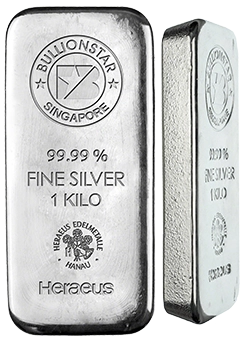Bloomberg Hit Piece On UAE Gold Triggers Strong Response
On 28 December, as 2021 was coming to a close, Bloomberg published a curious, slanted and hypocritical article titled “Dubai can’t shake off the stain of smuggled African gold”, in which it attempted to connect gold mined from various troubled African countries to gold imports into the UAE and Dubai.
The article was curious in that it begs the question of who or what motivated Bloomberg to write such an involved article (the article was lengthy at nearly 2,400 words and used the input of no less than 11 Bloomberg reporters). The article was slanted since by its very nature and crafting it set out to launch an attack on Dubai, and it can only be seen as a hit piece on the Dubai / UAE gold sector. And the article was hypocritical in that Bloomberg could have written about illicit and smuggled gold connected to LBMA and Swiss refineries, but chose not to.
Bloomberg – Over the Target
Written in the style of an investigative piece, but at the same time low on concrete facts and supporting evidence, Bloomberg’s feature piece claims that “interviews with government officials across Africa reveal smuggling operations that span at least nine countries and involve tons of gold spirited over borders”, but then only manages to name and quote two African government officials, the Congolese Finance Minister, and the Nigerian Mines Minister (who was particularly critical of Dubai), while not mentioning government officials from the other seven countries – specifically, the nine countries referred to were Sudan, Nigeria, the Democratic Republic of Congo, Zimbabwe, Mali, Ghana, Burkina Faso, Central African Republic and Niger.
Bloomberg goes on to say that African gold smuggling “is a cause of international concern”, quoting OECD guidelines, and then loses no time in pinning the blame on Dubai:
“The U.N. and NGOs have long questioned the apparent role of one of the Emirates – Dubai – in facilitating the trade by closing its eyes to imports from dubious sources.”
“The bulk of Africa’s illegally mined gold is channeled to Dubai through refineries in countries like Uganda and Rwanda, or is flown there directly in hand luggage, often with false papers, according to government and industry officials, U.N. experts and civil rights groups.”
However, these NGOs and civil rights groups go unnamed by Bloomberg, except for one reference to the NGO “The Sentry”.
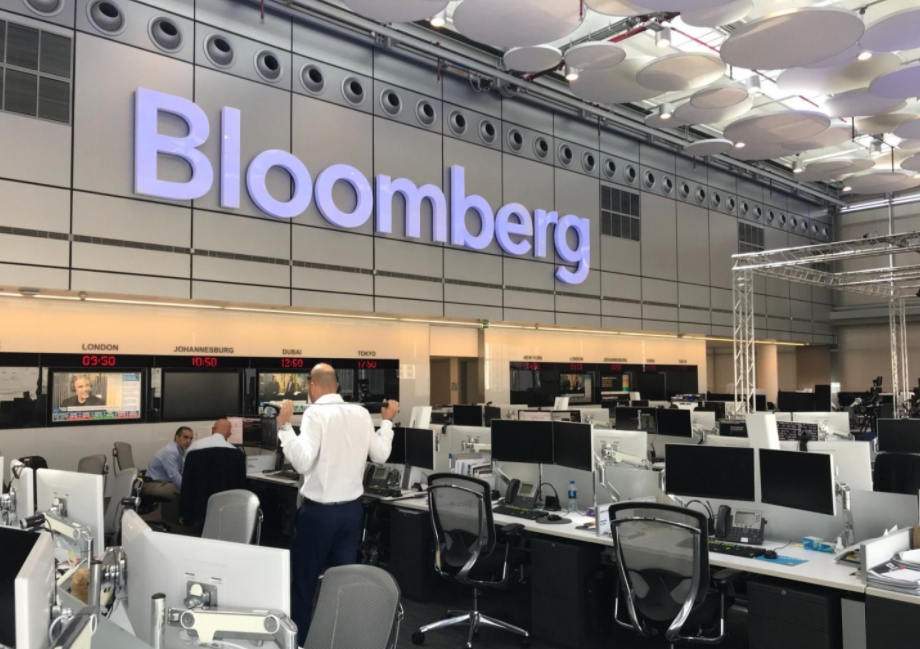
While in the article, Bloomberg gives Dubai / UAE a chance to defend itself, the entire framing is a classic slur tactic of “make an accusation, contact the accused and let them deny it, then publish the denial”, as in “Dubai denies that it’s the central destination of smuggled gold from Africa”, a tactic which actually achieves the desired result of creating reputational damage for the accused.
LBMA – The Conference Organiser
Not surprisingly for a mainstream financial media article attacking the Dubai gold industry, the bullion bank controlled and Bank of England connected entity, known as the London Bullion Market Association (LBMA), makes an appearance, with Bloomberg reminding readers that in November 2020 the LBMA sent a letter to all major gold centres which “threatened to bar its accredited refineries from sourcing metal from countries that didn’t meet its responsible sourcing standards”, a move which was dressed up as a ‘bullion centres initative” by the LBMA but which everyone knew was a smokescreen to attack Dubai.
As a Reuters article at the time put it:
“The LBMA letter did not target any centre in particular, but four people involved in drafting it told Reuters the gold industry in Dubai in the United Arab Emirates (UAE) was the main focus.“
See BullionStar article “In Delusional Push, LBMA Threatens to Blacklist Entire Gold Trading Centres” for a background to those events.
Fast forward to now, and the Bloomberg article from 28th December 2021 informs us that:
“the LBMA has yet to follow through on its threat. Sakhila Mirza, its general counsel, said the association is still assessing what the UAE has done to combat smuggling. The LMBA does see the need for urgency, but has to act within the rules, and “disengaging is the last step,” Mirza said in an interview”.
Strange that. Why does the LBMA, whose main role seems to be organizing virtual conferences and online training, think that it has the right to threaten anyone, let alone to threaten one of the biggest gold trading centres in the world, and come to think of it, why does the same conference organizer based in London think that it’s the global authority on precious metals?
One new piece of information presented in Bloomberg’s 28 December article which adds another dimension to the mix is that the US Treasury Department and it’s Office of Foreign Assets Control have now also appeared on the scene, with Bloomberg saying that:
“Deputy U.S. Treasury Secretary Wally Adeyemo discussed concerns about gold smuggling with Emirati officials during a visit to Dubai and Abu Dhabi in mid-November.”
And that:
“Adeyemo noted that stronger enforcement efforts targeting illicit finance could give the UAE a competitive advantage in the region”
With even the heavy weight US Treasury (which works on behalf of the national interests of the US and Wall Street) on the scene, could this all be to do with competition, and a fear by gold centres such as London and Switzerland that the UAE / Dubai is now gaining ground?
As Bloomberg notes in its article, last November the executive chairman and CEO of the Dubai Multi Commodities Centre (DMCC), Ahmed Sultan Bin Sulayem, referred to “consistent and unsubstantiated attacks launched on Dubai by other trading centers and institutions”, the most prominent of which [at that time] were the November 2020 LBMA threat to which “Bin Sulayem issued a rebuke on behalf of Dubai accusing the association of trying to undermine the UAE’s gold market”, and the October 2021 warning from Switzerland’s State Secretariat for Economic Affairs (SECO) to its gold refineries to identity the country origin of gold coming out of the UAE, to which Bin Sulayem responded “accusing the Swiss authorities of hypocrisy”. See here also for a background to the Swiss SECO intervention against the UAE.
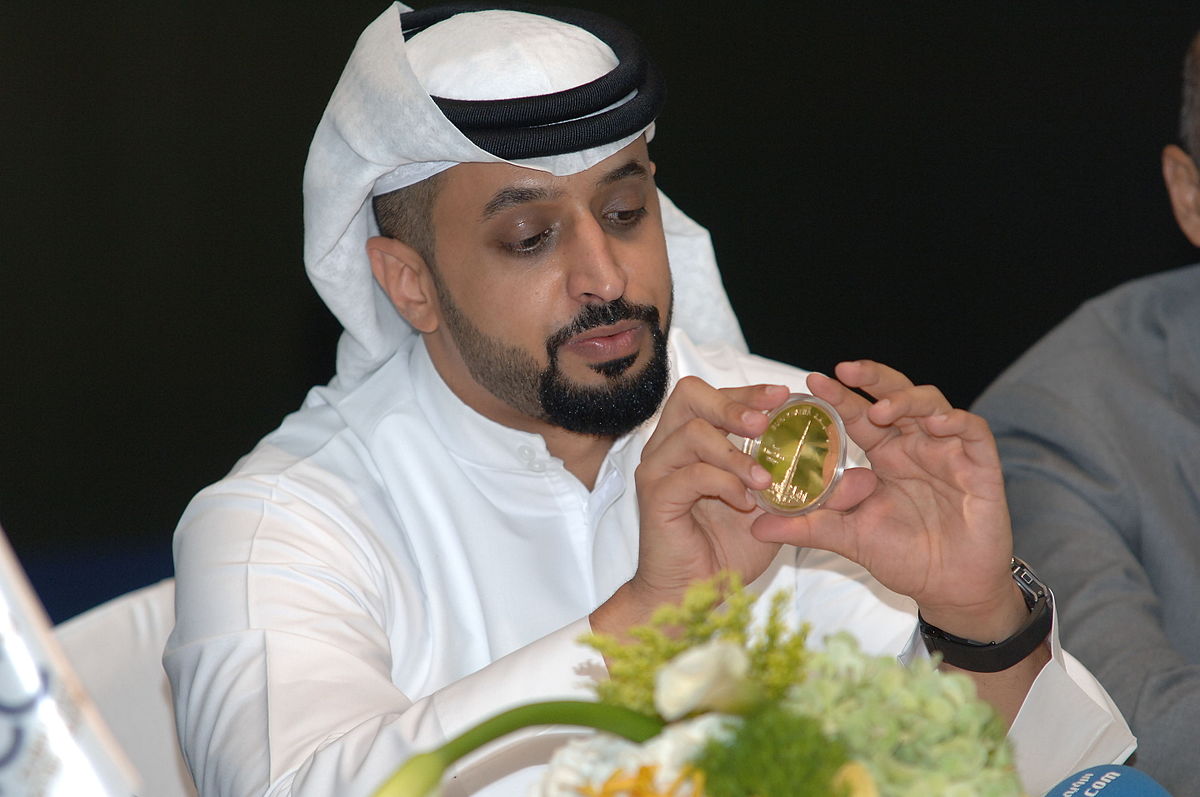
So, at this juncture you might ask, does Ahmed Sultan Bin Sulayem have a view on this latest Bloomberg “Dubai can’t shake off the stain of smuggled African gold” article, and has Bin Sulayem issued a rebuttal or response?
The Response from Bin Sulayem
As a matter of fact, yes. In fact, DMCC’s Bin Sulayem has just responded to Bloomberg on 3 February, and in a similar style of his previous responses to both the LBMA and the Swiss SECO, this latest response to Bloomberg is in the form of a blog article and is posted on LinkedIn.
Bin Sulayem’s response to Bloomberg is titled “Controlling the Narrative – The immoral trinity of weak governance, big business, and the mainstream media”, and makes intriguing reading.
Noting that the Bloomberg article “references interviews with non-specified government officials across Africa” but that “the only two African ministers named and quoted in the article were Congolese Finance Minister, Nicolas Kazadi and Nigerian Mines Minister, Olamilekan Adegbite”, Bin Sulayem notes that the suggestion from Nigeria’s Adegbite:
“that Dubai, and Dubai alone is inherently corrupt in the global gold trade is not only a slur, but typical of the distorted narrative that has been propagated by those who are most threatened.”
Bin Sulayem goes on to mention “Nigeria’s extensive socioeconomic difficulties, its ranking in the Corruption Perceptions Index” and “its escalating challenges with cybercrime” and notes that Adegbite even recently said that the problems with Nigeria’s mining sector were manyfold, so that “perhaps the [Nigerian] Minister would then also concede that Dubai isn’t the primary issue in his country’s mining supply chain.”
The DMCC chairman notes that “the UAE has continuously reached out to cooperate with the international community to combat crime and illicit activity, most recently by engaging with organisations such as FATF, HMRC, the FBI and the United Nations to combat money laundering and counter terrorism financing” and calls on the Nigerian minister to join Dubai in:
“supporting an outright ban on hand-carry doré gold bars in conjunction with all of us who are serious about stemming the flow of illicit gold.”
Note that it was actually the DMCC’s Ahmed Bin Sulayem who at a DMCC conference in Ghana in 2016 first called for a global ban on hand-carry gold on flights, so as to combat gold smuggling.
Probably most importantly, in his 3 February 2021 response to Bloomberg, Bin Sulayem then addresses another elephant in the room, namely, why Bloomberg never does investigations of or writes about the gold supply chain issues of the LBMA and Swiss refineries:
“Aside from its willingness to jump on the bandwagon and lambast Dubai, the Bloomberg article appears to afford other refining centres and producing nations a free pass.
Bearing in mind the complete supply chain and volume of bullion sent to Europe each year, there are many other actors, elements and challenges in the gold market. Not just Dubai.”
The DMCC’s Bin Sulayem then addresses the actual headline used by Bloomberg in its 28 December article, the title of which as a reminder was “Dubai can’t shake off the stain of smuggled African gold”, saying that “there are three things which make its headline very misleading”.
The first misleading aspect of the Bloomberg title says Bin Sulayem is “sovereign accountability.” Why, wonders Bin Sulayem, does Bloomberg not pull up these African countries on their shortcomings:
“While numerous countries are referenced throughout the article, not once does it place the onus on the respective governments to better police both their artisan mining communities and their border controls.”
And why do African governments not support his call for a total ban on hand carry gold on flights. The second misleading aspect of the Bloomberg title, thinks Bin Sulayem, is “to what extent should Dubai be accountable for the African gold industry’s supply chain.” The third point addresses the “credibility” of the data presented by Bloomberg. As Bin Sulayem writes:
“In order for the [Bloomberg] article to stand up, it is important to acknowledge that the African countries in question have complete, accurate and reliable data – an unlikely scenario given that of the nine countries where gold smuggling is “rampant”, five fall comfortably into the bottom 22% of the world’s most corrupt countries.”
Bloomberg asserts in its article that according to UN trade data, there is “a discrepancy of at least $4 billion between the United Arab Emirates’ declared gold imports from Africa and what African countries say they exported to the UAE.”
If this was the case, calculates Bin Sulayem, “it would suggest that 60 tons is being illicitly smuggled, primarily by hand-carry into Dubai”.
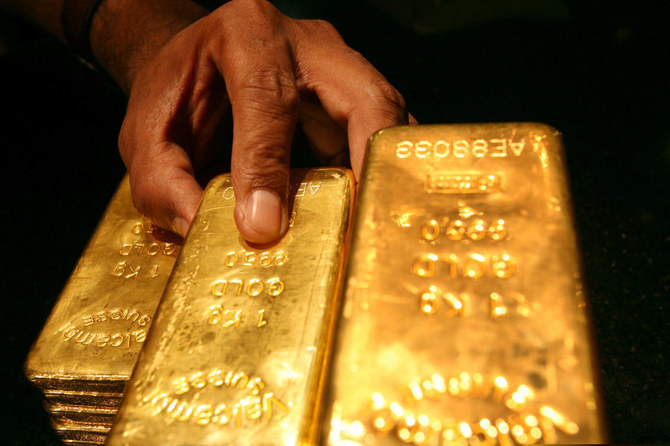
Even Bloomberg was told this was not possible by one of the people quoted in Bloomberg’s very own article, i.e. Michael Bartlett-Vanderpuye, chairman of M&C Group Global, a company which mines and sources Ghanaian gold for a mainly UAE client base. According to Bartlett-Vanderpuye:
“I always found it very difficult to believe that people are actually able to bring gold to the UAE without the documentation,” he said. “When I look at the system at the airport, I find it near to impossible.”
Upsetting the Establishment – The Crux of the Issue
This then leads Bin Sulayem to apply Occam’s Razor, which as a reminder can be summarized as – ignore unlikely explanations since the simplest solution is almost always the best. With this test, Bin Sulayem then goes to the heart of the matter:
“This quickly becomes a case of Occam’s Razor – is it more likely that some of the most corrupt and administratively under-resourced countries in the world with little to no accurate data or control over their national mining efforts can convincingly identify Dubai as illicitly accepting 2.1% of the global annual gold output while showing little to no interest in changing the status quo,
or that Dubai represents a threat to the former UK-Swiss-based monopolies of the industry and to the bureaucrats whose pockets remain comfortably lined.”
Which begs the question, why can’t Bloomberg produce data on the official gold production of each of these African countries, the breakdown between large-scale mining and artisanal, and how much of this African gold is exported to other gold trading centres including the UK, Switzerland, Turkey, India and Hong Kong?
And why no mention from Bloomberg about the gold from West African countries which CFA Franc members are obliged to send to the French Treasury in Paris as part of their conditions for CFA Franc membership.
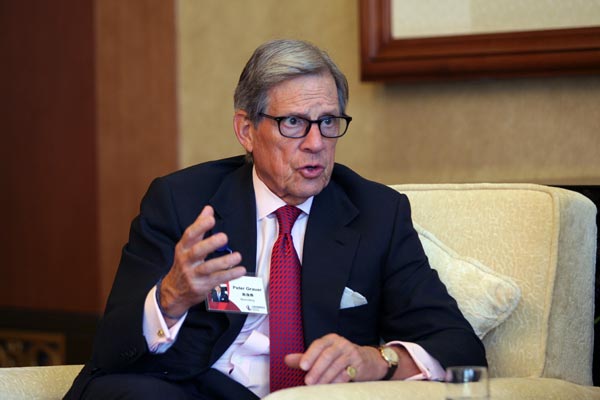
The Bloomberg Chairman
Shifting up gears, DMCC’s Bin Sulayem then gives some background on Bloomberg L.P’s current Chairman of the Board, Peter Grauer, who:
“is the former Senior Independent Non-Executive Director for Glencore PLC, the Anglo-Swiss multinational commodity trading and mining company from May 2014 – 2018, a company whose extensive criminality across Africa and Asia includes tax evasion, racketeering, embargo breaches, foreign bribery, manipulating oil prices and money laundering charges.
Perhaps he could have offered some insight as to how Africa’s mining supply chains actually operate?”
There is, says the DMCC head, an “increasingly homogenised alliance between corrupt government, big tech/ big business, and the mainstream media”, an observation which its clear to see is now more true than ever.
The global gold, writes Ahmed Bin Sulayem, “deserves better than schoolboy analysis” and “a less than authoritative approach” from Bloomberg, as “Bloomberg can and should do better”:
“We expect fair competition and welcome informed criticism, however, the subject is too important for holiday journalism.”
Bin Sulayem continues:
“There are a total of eleven journalists credited with this tour de force. The editors might have done better to interview policy makers from the major gold producing, or supposedly exporting nations on the continent, as opposed to Nigeria which doesn’t even rank in the top 15.”
“A two-colour map of Africa [in the Bloomberg article] that arbitrarily demarcates countries with a major gold smuggling problem with no comparisons, no data, no definitions, no numbers and no evidence, yet leaves Uganda, Rwanda, South Africa, Guinea, Tanzania, Côte d’Ivoire, Senegal, Mauritania, Egypt, Ethiopia and Namibia off the list?”
Bin Sulayem wraps up by referencing Peter Vanderwicken in a 1995 Harvard Business Review op-ed which was titled “Why the News Is Not the Truth” and which was based on a study called “News and the Culture of Lying: How Journalism Really Works”, to illustrate “the corrupt and self-perpetuating relationship between the government and the media”, where the media “fails to do what it claims to do, what it should do, and what society expects it to do.”
Conclusion
So there you have it. Did Bloomberg not know that by targeting Dubai and the UAE, it is going up against a ‘Hard Target’?
The only points I would add are to ask why would Bloomberg decide to create this article in the first place, using significant resources (11 reporters)? What was Bloomberg’s motivation?
Did the request for this Bloomberg article to be produced go all the way to the top? Maybe even as far as the Bloomberg executives or the Bloomberg board?
Who has the power to direct Bloomberg’s massive resources to come together to write such a piece? The Bloomberg chairman certainly would.
Additionally, was there a hidden hand behind the scenes in the form of further interventions by the LBMA bullion banks?
And why does Bloomberg never conduct an investigation of illicit gold flowing into LBMA refineries? And in a wider sense, why Bloomberg can devote 11 reporters to a substantial piece about Dubai gold and Africa, yet never does an investigative piece about “gold price discovery", about the unallocated gold credit market in London, about the London gold lending market, or about the gold trading activities of the Bank for International Settlements (BIS)?
Tough questions that require tough answers. But topics which mainstream financial reporters don’t look like they have the courage to pursue.
Popular Blog Posts by Ronan Manly
 How Many Silver Bars Are in the LBMA's London Vaults?
How Many Silver Bars Are in the LBMA's London Vaults?
 ECB Gold Stored in 5 Locations, Won't Disclose Gold Bar List
ECB Gold Stored in 5 Locations, Won't Disclose Gold Bar List
 German Government Escalates War On Gold
German Government Escalates War On Gold
 Polish Central Bank Airlifts 8,000 Gold Bars From London
Polish Central Bank Airlifts 8,000 Gold Bars From London
 Quantum Leap as ABN AMRO Questions Gold Price Discovery
Quantum Leap as ABN AMRO Questions Gold Price Discovery
 How Militaries Use Gold Coins as Emergency Money
How Militaries Use Gold Coins as Emergency Money
 JP Morgan's Nowak Charged With Rigging Precious Metals
JP Morgan's Nowak Charged With Rigging Precious Metals
 Hungary Announces 10-Fold Jump in Gold Reserves
Hungary Announces 10-Fold Jump in Gold Reserves
 Planned in Advance by Central Banks: a 2020 System Reset
Planned in Advance by Central Banks: a 2020 System Reset
 China’s Golden Gateway: How the SGE’s Hong Kong Vault will shake up global gold markets
China’s Golden Gateway: How the SGE’s Hong Kong Vault will shake up global gold markets






 Ronan Manly
Ronan Manly 0 Comments
0 Comments








